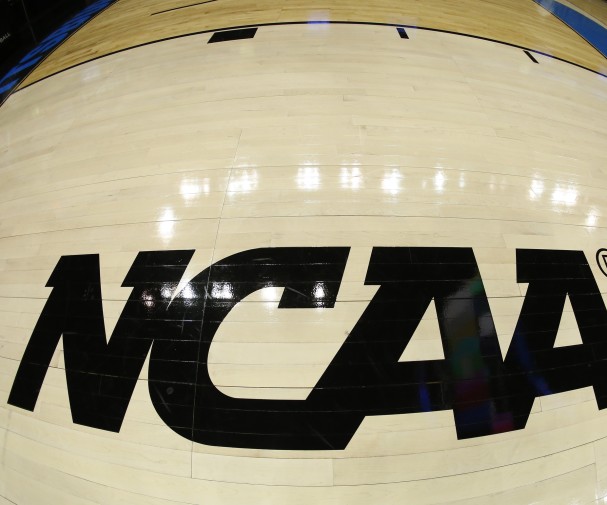The Final Four obviously is this weekend. The ACC has two of the four teams in Syracuse and North Carolina. This week has also brought out lots of discussions from a national perspective on the academic scandals at Syracuse and specifically in Chapel Hill. There are too many stories this week to have separate entries so here is a sampling of what has been written and said about UNC this week:
Pat Forde – On Probation vs. Under Investigation
The Final Four matchups are now set. In one national semifinal, we have Villanova vs. Oklahoma. In the other, we have On Probation vs. Under Investigation.
Also known as the Outside Counsel Billable Hours Invitational, underwritten by Bond, Schoeneck & King. Also known as Questions 1 through 30 for NCAA president Mark Emmert, should he have his annual meeting with the media in Houston. Also known as Syracuse vs. North Carolina.
Matt Jones
After that Interview, he was on Twitter as a follow-up:
Dear UNC fans…on Finebaum I said 09 team "majored" in AF Amer Studies…I should have said "took multiple fake classes in." My mistake
— Matt Jones (@KySportsRadio) March 31, 2016
UNC Athletics perpetuated biggest college sports scandal maybe ever…their defense: "It wasn't Athletics, Our Whole University was corrupt"
— Matt Jones (@KySportsRadio) March 31, 2016
UNC is one of best public Universities in America. For 20 years they allowed Systematic academic fraud so athletes could play games. Period
— Matt Jones (@KySportsRadio) March 31, 2016
UNC fans/alumni should be outraged…instead priority #1 is protecting basketball. Don't try to sell any bogus "Carolina Way" nonsense again
— Matt Jones (@KySportsRadio) March 31, 2016
Andy Katz
ESPN’s Katz interviewed Mark Emmert, president of the NCAA, about several items earlier this week. One of the topics was the UNC scandal.
NCAA president Mark Emmert said the final notice of allegations for the North Carolina investigation into academic fraud “will be done in the coming weeks or a month or so.”
In an interview with ESPN after his news conference Thursday, Emmert said the enforcement staff wants to get it done but also wants to make sure the facts are straight.
“The next step is the delivery of allegations,” Emmert said.
…
“It’s a great, big, complicated case, and it’s taking a long time to get all the information in place,” Emmert said. “We’re not putting a timetable on it.”
Dan Kane
Kane, who has been investigating this UNC scandal in an excellent way for the past few years with the News and Observer, wrote two articles this week regarding the scandal.
First, he wrote an article in which a 2003 UNC report contradicts what UNC says regarding the number of independent studies classes.
UNC-Chapel Hill, which is under investigation for fraudulent classes involving athletes, has maintained that students were not subjected to a limit on independent studies until the 2006-07 academic year.
That stance appears to have narrowed one key part of the NCAA’s investigation.
But a new document released by the university in March shows that the limit on independent studies started before 2003. Other evidence suggests that the limit was in place since the early 1990s.
In response to a long-standing public records request from The News & Observer, UNC provided a 2003 faculty report that proposed numerous curriculum changes.
Deep within the report, the authors cited a 12-hour independent studies limit. Noting that curriculum changes can’t happen if they run counter to General College and Arts and Sciences guidelines, the report said: “That might mean, for example, considering whether to reaffirm the current rule that an Arts and Sciences student can count toward graduation only twelve hours of independent study.”
The start date of that 12-credit-hour limit is critical because the NCAA considers that athletes who exceeded it received an impermissible benefit.
Going back further than 2006 would add well more than 100 athletes to the list of 10 that the NCAA said exceeded the independent study limit through classes that had no professor, never met and yielded a high grade for an end-of-class paper.
For example, records show many athletes on the 2005 men’s basketball championship team took multiple fake classes, which were directed and graded by a clerical employee in the African studies department – including a star player who took 12 hours’ worth in the spring semester when the team won the title.
His second article was an updated primer on the status of the scandal. Here is one of the questions (and answers):
Q: Men’s basketball coach Roy Williams says there are no NCAA allegations involving men’s basketball. Is that true?
A: No. The NCAA’s case against UNC alleges men’s basketball players received impermissible benefits by receiving special access to the fake classes, largely through the efforts of academic counselors in the athlete support program. Men’s basketball is among the three programs that primarily benefited from the special access. The exhibits along with the notice cite examples of that access, including men’s basketball counselor Wayne Walden working with Crowder to put athletes in the classes. Williams brought Walden to UNC from Kansas.
The notice does not accuse Williams or the coaches of wrongdoing, but the fake classes aided his players, particularly those on the 2005 championship team.
So, before UNC plays Syracuse in the Final Four on Saturday, go through the above links as these topics won’t be addressed much during the game.



